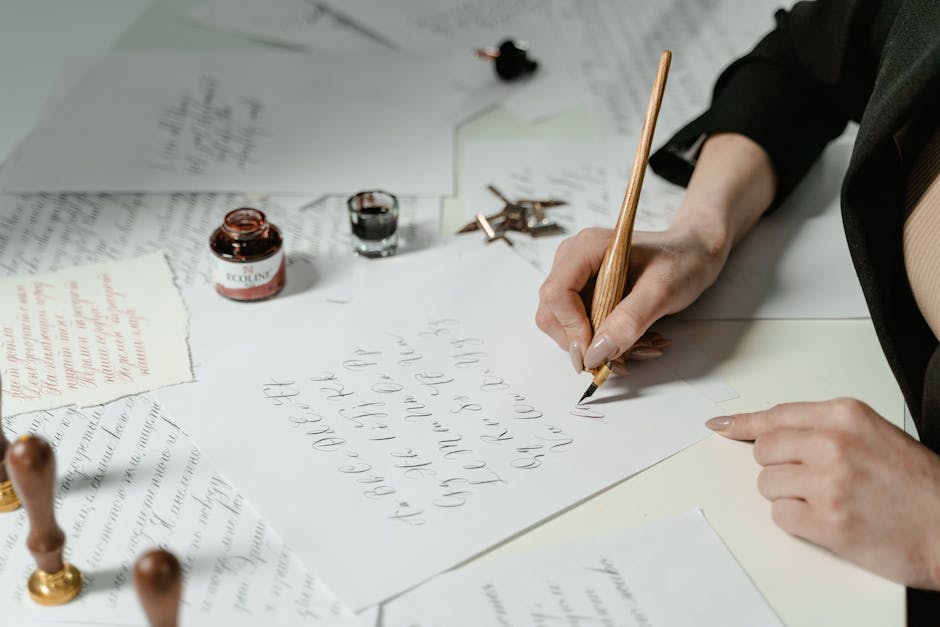A primary challenge lies in overcoming the insidious influence of imitation. Young writers often begin by emulating authors they admire. While this is a natural stage of development, mimicking style without understanding its underlying motivations can lead to a stagnant, derivative voice. The writer becomes a chameleon, adopting various styles without ever truly integrating them into a personal expression. Breaking free from this imitative phase requires conscious effort, a willingness to experiment with different forms and techniques, and a relentless pursuit of authenticity. This involves critical self-assessment: identifying what resonates deeply with the writer’s own sensibilities and discarding elements that feel inauthentic or forced.
Another significant impediment is the fear of vulnerability. Creative writing, especially poetry, often demands a degree of self-revelation that can be profoundly unsettling. Writers must confront their deepest fears, insecurities, and experiences, exposing them to potential judgment and criticism. This vulnerability is intrinsic to the process of forging a distinct voice; it is in the raw, unfiltered expression of emotion and experience that genuine originality emerges. However, this process can be terrifying, prompting self-censorship and a reluctance to delve into truly personal material. Overcoming this fear requires cultivating a supportive writing community and developing a thicker skin, gradually accepting that imperfections are not only acceptable but essential to the creative process.
Perfectionism, a common affliction among writers, also acts as a formidable obstacle. The pursuit of flawlessness can paralyze the creative process, leading to writer’s block and an inability to produce work. This relentless striving for perfection often stems from a fear of failure or a deep-seated insecurity about one’s abilities. The writer becomes trapped in a cycle of endless revision, never quite satisfied with the final product. Breaking free from this cycle necessitates accepting imperfection as a natural part of the creative process. Embracing the messy, iterative nature of writing allows for greater freedom and authenticity. Learning to prioritize completion over perfection is crucial in this stage.
External pressures, too, significantly contribute to the difficulty of finding one’s voice. The commercial imperative to write what sells can lead to creative compromise, forcing writers to cater to perceived market demands rather than following their own artistic inclinations. This can stifle creativity and result in a homogenous body of work that lacks originality and depth. Similarly, societal expectations and the pressure to conform to specific genres or styles can significantly restrict a writer’s exploration of their own unique expression. Resisting these pressures requires a strong sense of self-belief and an unwavering commitment to one’s own artistic vision. This involves cultivating a resilient attitude and ignoring external validation as the primary metric of success.
Further complicating matters is the evolving nature of voice itself. A writer’s voice is not static; it evolves and changes throughout their career, shaped by new experiences, perspectives, and artistic influences. What resonates initially may lose its appeal later on, leading to periods of creative uncertainty and experimentation. This constant evolution can be unsettling, creating a sense of instability and self-doubt. Embracing this dynamic aspect of voice is essential; the journey of finding one’s voice is not a destination but a continuous process of growth and transformation. Rigorous self-reflection and a willingness to adapt and experiment are crucial aspects of this ongoing process.
The influence of language and form also plays a crucial role. The choice of languagewhether formal or informal, lyrical or prosaicsignificantly shapes a writer’s voice. Similarly, the chosen formpoetry, prose, short stories, novelsimposes its own stylistic constraints and opportunities. Experimentation with different forms and styles is crucial for discovering the best fit for one’s unique expression. However, this experimentation can be daunting, requiring a willingness to step outside one’s comfort zone and explore unfamiliar territories. It necessitates a deep understanding of the nuances of language and form, and a willingness to embrace failure as a learning opportunity.
Finally, accessing and processing personal experience is pivotal. Many writers struggle to translate their lived experiences into compelling narratives. This difficulty often stems from emotional barriers, a lack of self-awareness, or an inability to articulate complex feelings. Overcoming this requires introspection, a willingness to confront difficult emotions, and the development of strong narrative skills. Utilizing various writing exercises, seeking feedback from trusted sources, and engaging in therapeutic writing practices can greatly assist in navigating this challenging aspect of finding one’s voice. The transformation of personal experience into compelling art demands both emotional honesty and skillful craftsmanship.
In conclusion, finding one’s voice in poetry and creative writing is a complex and multifaceted process, riddled with internal and external challenges. Overcoming these obstacles demands self-awareness, perseverance, a willingness to experiment, and a deep commitment to one’s own artistic vision. The journey is a lifelong pursuit, characterized by both exhilarating breakthroughs and frustrating setbacks. Ultimately, the rewarda unique and authentic voiceis well worth the effort.
